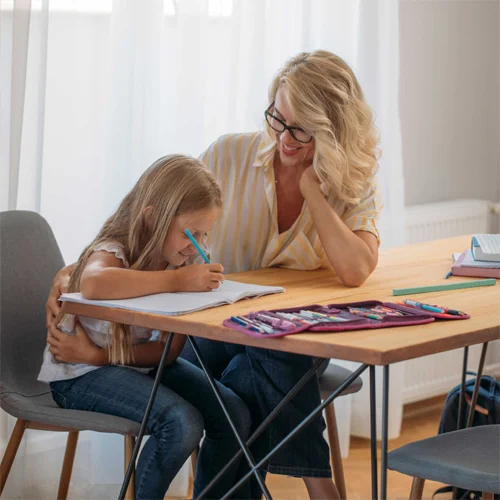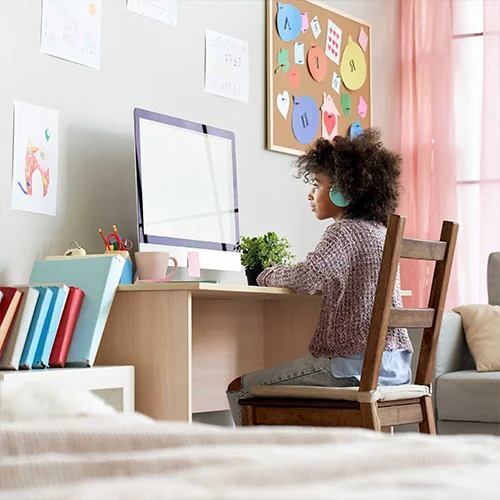Routines that feel good!
By Audrey Thauvette, psychoeducator
A child’s day rhymes with “metro, work, bedtime”. Between waking up, breakfast, school, daycare, extracurricular activities, homework, bath time, family time and bedtime, children lead a hectic lifestyle. Fortunately, a number of daily routines (sleep, meals, hygiene care) repeated in the same order every day can help lighten the load. These are known as routines.
Why set up routines?
Routines are essential to a child’s development because they :
- Provide a sense of confidence and security;
- Develop autonomy;
- Improve assertiveness;
- Help to situate oneself in time;
- Encourage anticipation.
Establishing clear, precise routines reassures children, as the sequence of events is predictable and defined in time. Being in a structured environment where they can anticipate what’s to come enables children to prepare themselves psychologically: they are less stressed, and feel good and secure.
When sequences of behaviors are repeated day after day, automatisms develop. The level of attention and concentration required to perform tasks is then lower. Think about it: when you learned to pedal a bike, you had to concentrate on moving your legs, maintaining your balance and steering the handlebars, while observing the road and avoiding obstacles. With practice, you can now pedal without thinking about all these gestures; you do it on “autopilot”.
In the medium and long term, automatisms improve children’s efficiency, promote the development of their autonomy, shorten execution time and reduce the need for parents to repeat instructions. Indeed, a child who has integrated a routine is able to carry it out without arguing and without his parents having to repeat the steps.
Who are the routines for?
All children benefit from routines, but especially the youngest and those with behavioral adjustment difficulties, since routines help to overcome their difficulties (attention span, concentration, planning and organization).
Good times for routines
You can create routines for all your activities that recur on a daily basis:
- Getting up ;
- Eating ;
- Bedtime ;
- Homework and lessons;
- Chores.
The importance of a bedtime routine
The bedtime routine is extremely important, as it helps us to fall asleep and improve the quality of our sleep. Studies show a link between sleep deprivation and emotional hyperactivity. Did you know that sleep deprivation makes you irritable, emotional, more prone to opposition and outbursts, increases anxiety symptoms, decreases attention and concentration levels, as well as your ability to make critical judgments and reason with yourself? That’s why the National Sleep Foundation recommends 11 to 14 hours of sleep per night for children aged 3 to 5, and 10 to 13 hours for children aged 6 to 13.
Images to integrate routines
To help children assimilate routines, there’s nothing better than pictorial sequences and pictograms placed in plain sight and practiced regularly with the help of parents. Setting up new routines takes time and energy. To maximize children’s commitment and motivation to new routines, involve them in developing the steps and images, and share the pleasure of performing a routine with them, so that they don’t associate it with drudgery. In the long run, routines will save a great deal of time and effort.
Here’s another article that’s sure to please:
Find out more and get better equipped:
Références :
- Cantin, G. L’importance des routines chez l’enfant. Repéré à http://naitreetgrandir.com/fr/etape/1_3_ans/soins/ fiche.aspx?doc=importance-routine-enfant
- Hébert, A. (2016). Anxiété, la boîte à outils : stratégies et techniques pour gérer l’anxiété. Éditions de Mortagne.
- Hébert, A. (2015). TDA/H, la boîte à outils : stratégies et techniques pour gérer le TDA/H, Éditions de Mortagne.
- Moreschi, C. L’importance de la routine chez l’enfant. Repéré à http://www.canalvie.com/famille/education-et-comportement/articles-education-et-comportement/l-importance-de-la-routine-chez-l-enfant-1.1434481













